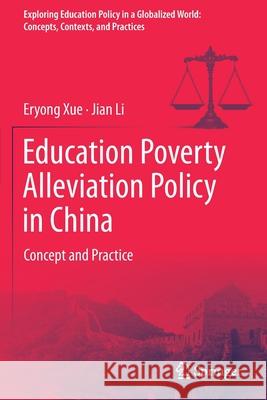Education Poverty Alleviation Policy in China: Concept and Practice » książka
topmenu
Education Poverty Alleviation Policy in China: Concept and Practice
ISBN-13: 9789813347755 / Angielski / Miękka / 2021 / 144 str.
Education Poverty Alleviation Policy in China: Concept and Practice
ISBN-13: 9789813347755 / Angielski / Miękka / 2021 / 144 str.
cena 403,47
(netto: 384,26 VAT: 5%)
Najniższa cena z 30 dni: 385,52
(netto: 384,26 VAT: 5%)
Najniższa cena z 30 dni: 385,52
Termin realizacji zamówienia:
ok. 16-18 dni roboczych.
ok. 16-18 dni roboczych.
Darmowa dostawa!
This book explores the education poverty alleviation policy in China from the perspectives of concept and practice. In this book, the authors also examine the major national education poverty alleviation policy to analyze the different periods and stages of education in China. This book also explores the development of China’s education poverty alleviation policy from different scopes. It examines the various stages, features, problems and suggestions in Chinese poverty alleviation progress.
The intended readers are scholars and researchers who are interested and work in research of the poverty alleviation education in Chinese context, and also the administrators and stakeholders in Chinese poverty alleviation education management and graduate students who majoring and minoring in the field of anti-poverty education.











